Spiralling university tuition fees and dearer food bills helped send the inflation rate sharply higher last month prompting warnings from business that the rising cost of living puts the economy at risk of a fresh period of weak growth.
The British Chambers of Commerce (BCC) and the Federation of Small Businesses (FSB) said the squeeze on living standards from rising prices was likely to hit demand over the coming months.
The predictions came after the Office for National Statistics released figures showing that the annual increase in the cost of living as measured by the consumer prices index rose from 2.2% to 2.7%, the first upward move since July. Inflation has now been above the government's 2% target for 35 months in a row and only below its official benchmark nine times in the past six-and-a-half years.
John Walker, the chairman of the FSB, said: "It is disappointing that inflation has risen as the trend for the past year has been downwards. However, with energy costs set to rise and the potential increase in fuel duty in January, we are concerned about the pressure this will add to household and business finances. We hope this doesn't act as a brake on consumer spending and dampen confidence, especially in the runup to Christmas."
David Kern, the BCC's chief economist, said the rise put recovery in jeopardy following Britain's exit from double-dip recession in the third quarter of 2012. "Higher inflation is unwelcome news for the UK economy at a time when the government is persevering with its tough austerity plan. In the face of major economic challenges, there is only limited scope for the UK to rebalance towards exports and investment over the next year."
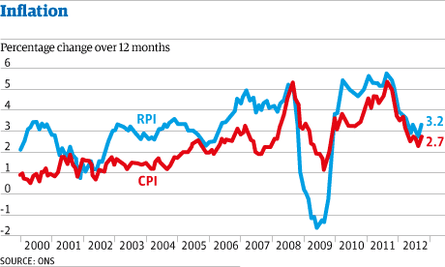
Education costs rose by more than 19% in October – the biggest one-month increase on record – as this year's new undergraduates were hit by a near-tripling of tuition fees to £9,000 a year.
Britain's wet summer also had an effect on grocery bills, with the ONS blaming a poor vegetable crop for higher food prices.
Other measures of inflation also rose. The annual increase in the retail prices index – used as the benchmark for many wage claims – stood at 3.2% in October, up from 2.6% in September.
The jump in inflation was far higher than the City had been expecting and triggered fears that the UK could drift into a triple-dip recession over the winter. A Treasury spokesman admitted the October increase in inflation was "disappointing", but noted that the annual rate was well down on its recent 5.2% peak in September 2011.
"The government has taken action to help people with the cost of living, including freezing fuel duty and council tax and taking 2 million people out of income tax altogether," the spokesman added.
Analysts said the short-term outlook was for inflation to rise further over the coming months in response to higher energy and food bills.
Ros Altmann, director-general of over-50s specialists Saga, said: "This increase in inflation is further dreadful news for savers as the combination of low interest rates and high inflation has had disastrous effects on disposable incomes and the spending power of millions of households which means monetary policy has actually damaged significant parts of the economy. Stagflation is here and set to get worse."
Unite's general secretary, Len McCluskey, said: "We are in a desperate situation where millions of working people and their families are juggling rising food and energy bills when household incomes for the majority of people have not kept pace in recent years. Where families lead in suffering, shops and businesses will follow."

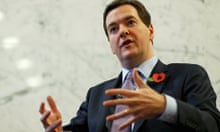
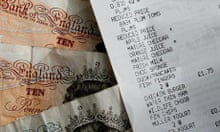



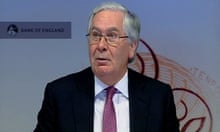
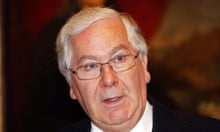
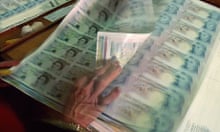

Comments (…)
Sign in or create your Guardian account to join the discussion